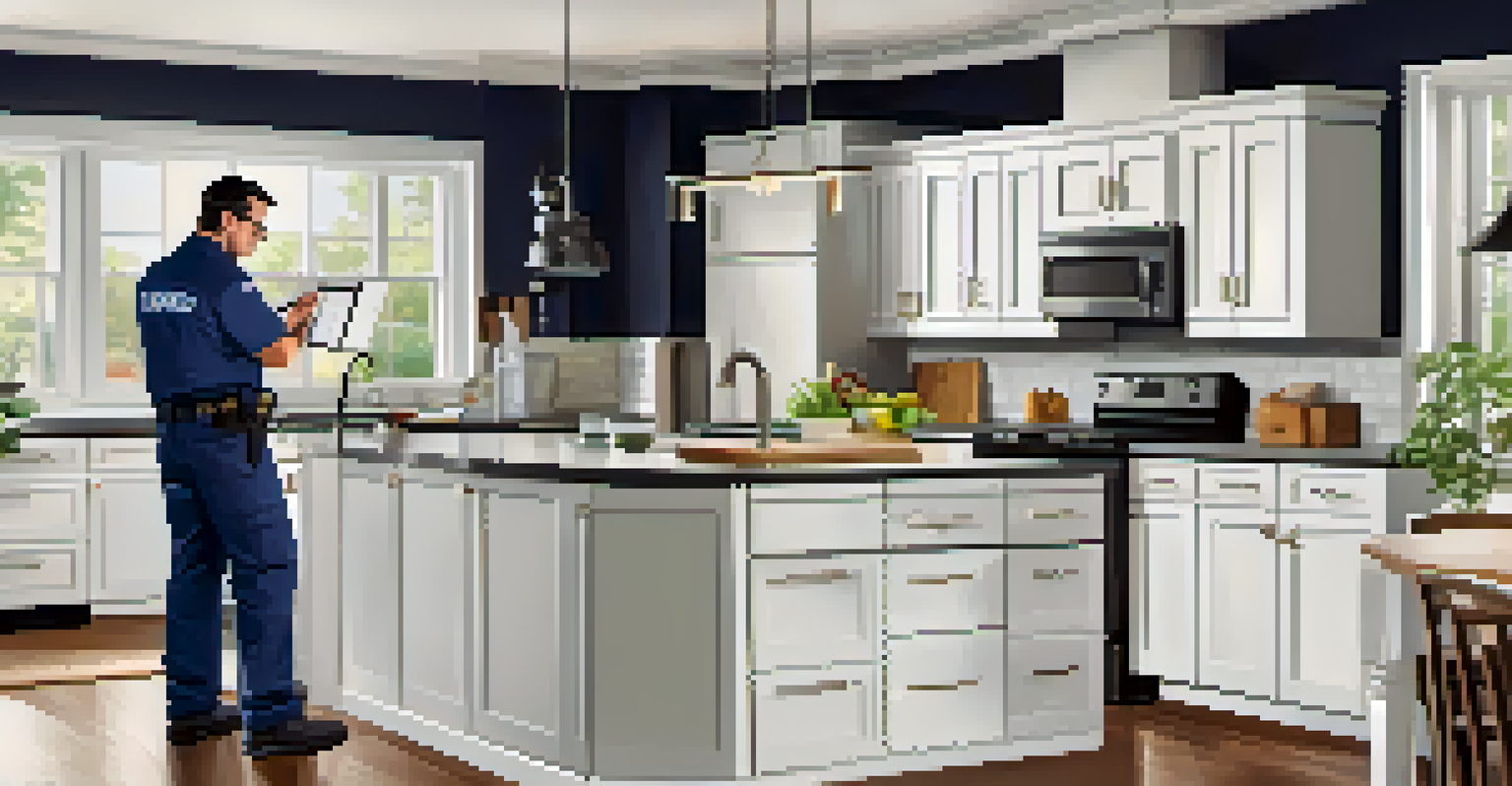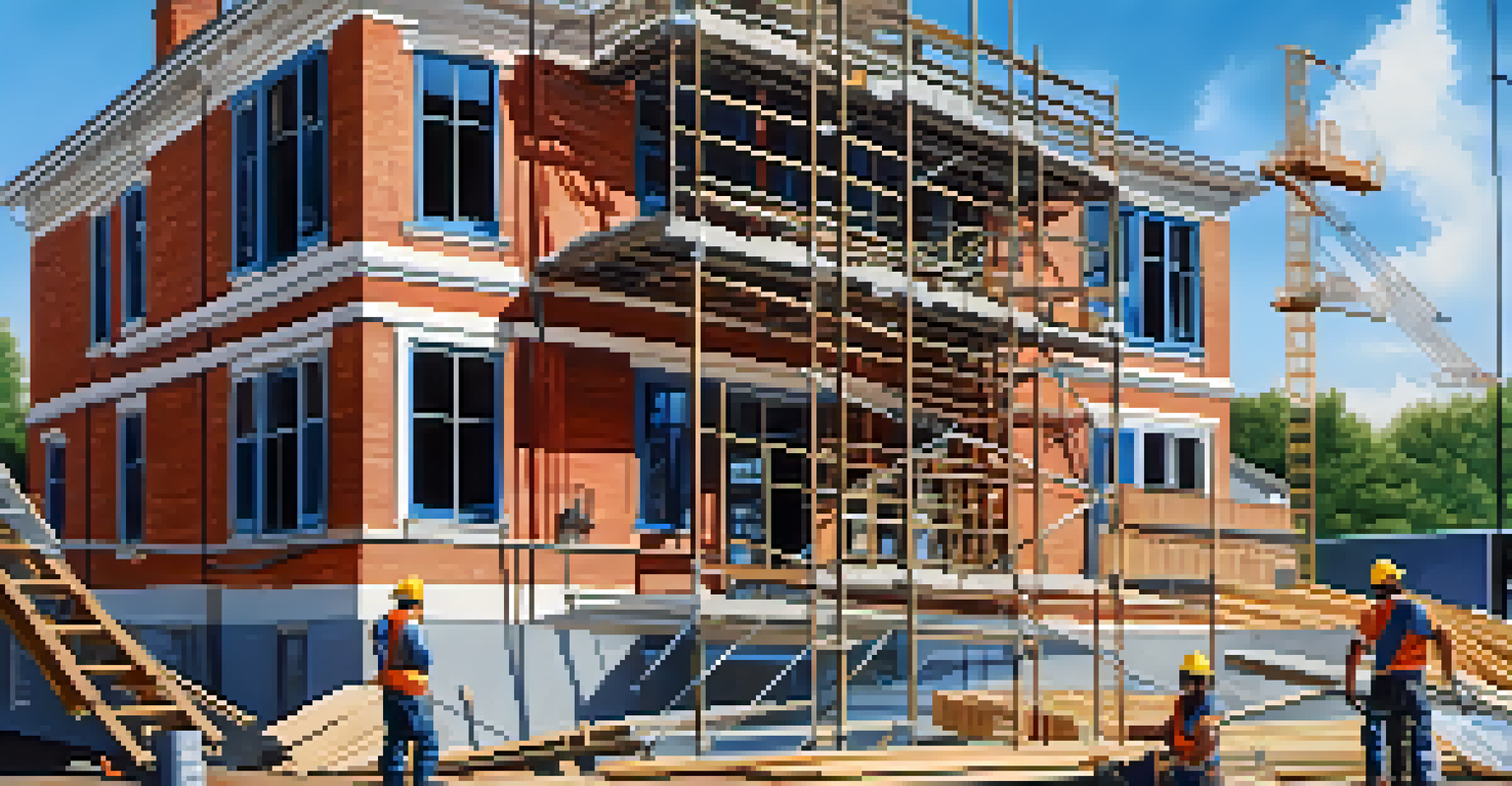Renovation Compliance: The Role of Home Inspections

What is Renovation Compliance and Why It Matters
Renovation compliance refers to the adherence to local building codes and regulations during home renovations. These codes are established to ensure that renovations are safe, durable, and environmentally friendly. Complying with these regulations not only protects the integrity of your home but also safeguards the health and safety of its occupants.
The bitterness of poor quality remains long after the sweetness of low price is forgotten.
When homeowners ignore compliance, they risk facing serious consequences, including fines, safety hazards, and complications during the sale of the property. For instance, a poorly executed renovation could lead to structural damage or even cause injuries. Thus, understanding and adhering to renovation compliance is crucial for any homeowner undertaking a project.
Moreover, compliance can enhance the value of your home. When potential buyers see that renovations have been done correctly and meet all regulations, they feel more confident in their investment. Therefore, compliance is not just a legal requirement; it's a key factor in maintaining and increasing property value.
The Importance of Home Inspections in the Renovation Process
Home inspections play a vital role in ensuring that renovations comply with local building codes. These inspections assess the quality and safety of the work done, identifying any violations or issues early in the process. Having a qualified inspector review your renovation can save you time and money by addressing problems before they escalate.

During an inspection, professionals look at various elements, such as electrical systems, plumbing, structural integrity, and safety features. They ensure that all aspects of the renovation meet the required standards. For example, an inspector might notice that wiring is not up to code, prompting necessary fixes that could prevent electrical fires.
Importance of Renovation Compliance
Adhering to local building codes protects your home and increases its value.
Additionally, home inspections provide peace of mind to homeowners. Knowing that a qualified professional has evaluated the work can alleviate concerns about safety and compliance. This assurance is invaluable, especially for those investing significant resources into their home renovations.
Common Issues Found During Home Inspections
Even the best renovation projects can run into compliance issues during home inspections. Common problems include improper electrical wiring, inadequate ventilation, and structural weaknesses. Identifying these issues early on is crucial for ensuring that your renovation meets all necessary standards.
An ounce of prevention is worth a pound of cure.
For instance, a homeowner might have added a new room without considering load-bearing walls. An inspector could flag this oversight, preventing future structural problems. Addressing such issues promptly can save homeowners from costly repairs down the line and help maintain the safety of their home.
Another frequent issue is failing to obtain the right permits before starting renovations. If an inspector discovers unpermitted work, the homeowner may be required to undo the renovations or face penalties. This emphasizes the importance of following local regulations and securing the proper permits before any renovation begins.
How to Prepare for a Home Inspection
Preparing for a home inspection can help ensure a smooth process and a favorable outcome. Start by organizing all relevant documents, such as permits, plans, and previous inspection reports. Having these materials on hand can facilitate the inspector's work and demonstrate your commitment to compliance.
Next, ensure that all areas of the home are accessible. This includes attics, basements, and crawl spaces, where important structural and mechanical systems are located. Clearing these areas of clutter allows the inspector to perform a thorough examination and can prevent any delays in the inspection process.
Role of Home Inspections
Home inspections identify compliance issues early, saving time and money.
Lastly, communicate openly with your inspector. If there are specific concerns or areas of the renovation you want them to focus on, share this information upfront. This collaborative approach can lead to a more comprehensive inspection and foster a positive working relationship with the inspector.
The Role of Professional Inspectors in Renovation Compliance
Professional inspectors are trained to identify compliance issues that may not be obvious to homeowners. Their expertise allows them to evaluate renovations against local building codes effectively. By hiring a certified inspector, homeowners gain access to a wealth of knowledge that can guide them through the renovation process.
These professionals not only check for compliance but also provide valuable advice on best practices and potential improvements. For example, they may suggest more energy-efficient materials that not only comply with regulations but also lower utility bills. Their insights can enhance the quality of the renovation, making it both compliant and cost-effective.
Furthermore, good inspectors build rapport with homeowners, fostering trust. This relationship can make the inspection process less daunting and more informative. When homeowners feel comfortable asking questions, they’re more likely to understand the importance of compliance and how to achieve it.
Understanding the Consequences of Non-Compliance
Choosing to bypass compliance can lead to severe consequences, both legally and financially. Homeowners may face fines and penalties, which can quickly add up. More importantly, these violations can impact the safety and livability of the home, potentially leading to long-term damage or health risks.
Additionally, non-compliance can create hurdles when selling a home. Prospective buyers may request inspections and back out if significant issues are found. This could mean losing out on potential buyers or having to lower the asking price to accommodate for the necessary repairs.
Consequences of Non-Compliance
Ignoring compliance can lead to fines, safety hazards, and difficulties in selling your home.
In some cases, homeowners may be forced to rectify compliance issues after the fact, which can be more expensive and time-consuming than addressing them upfront. It's a classic case of 'an ounce of prevention is worth a pound of cure,' highlighting the importance of prioritizing compliance from the start.
Final Thoughts: Ensuring Compliance for Peace of Mind
In conclusion, ensuring renovation compliance through home inspections is vital for every homeowner. Not only does it protect your investment, but it also guarantees the safety and functionality of your living space. By engaging professional inspectors and adhering to local regulations, you set the foundation for a successful renovation.
It's essential to approach renovations with a mindset that values compliance as much as aesthetics. After all, a beautifully renovated home is only as good as its structural integrity and safety features. Prioritizing compliance can lead to a more satisfying renovation experience and a home that truly stands the test of time.

So, whether you're planning a small update or a large remodel, remember that the road to a successful renovation is paved with compliance. Embrace the process, enlist the help of professionals, and enjoy the peace of mind that comes with knowing your home is safe and sound.